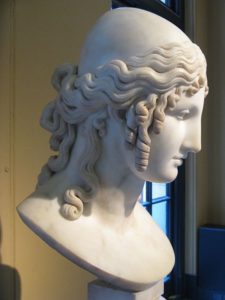Helen of Troy Personality Type
Daughter of Zeus in Greek Mythology
Helen of Troy, Helen, Helena, (Ancient Greek: Ἑλένη Helénē, pronounced [helénɛː]) also known as beautiful Helen, Helen of Argos, or Helen of Sparta, was a figure in Greek mythology said to have been the most beautiful woman in the world. She was believed to have been the daughter of Zeus and Leda, and was the sister of Clytemnestra, Castor and Pollux, Philonoe, Phoebe and Timandra. She was married to King Menelaus of Sparta "who became by her the father of Hermione, and, according to others, of Nicostratus also."The usual tradition is that after the goddess Aphrodite promised her to Paris in the Judgement of Paris, she was seduced by him and carried off to Troy. This resulted in the Trojan War when the Achaeans set out to reclaim her. Another ancient tradition, told by Stesichorus, tells of how "not she, but her wraith only, had passed to Troy, while she was borne by the Gods to the land of Egypt, and there remained until the day when her lord [Menelaus], turning aside on the homeward voyage, should find her there."Elements of her putative biography come from classical authors such as Aristophanes, Cicero, Euripides, and Homer (in both the Iliad and the Odyssey). Her story reappears in Book II of Virgil's Aeneid. In her youth, she was abducted by Theseus. A competition between her suitors for her hand in marriage saw Menelaus emerge victorious. All of her suitors were required to swear an oath (known as the Oath of Tyndareus) promising to provide military assistance to the winning suitor, if Helen were ever stolen from him. The obligations of the oath precipitated the Trojan War. When she married Menelaus she was still very young; whether her subsequent departure with Paris was an abduction or an elopement is ambiguous (probably deliberately so).

